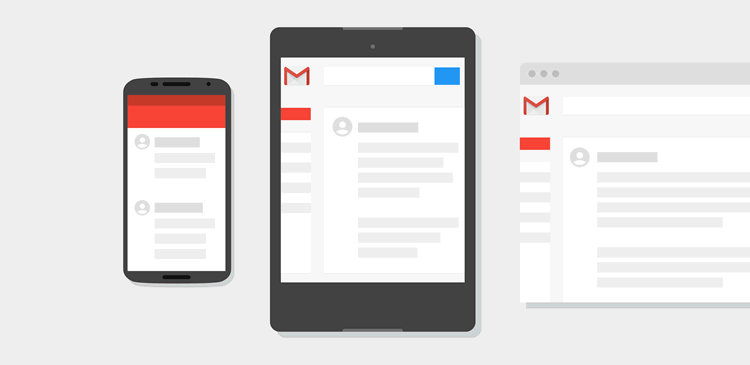An Application Programming Interface (API) is a set of rules as well as specifications that developers can follow to communicate or interface with each other. APIs have been rightly called the “fossil fuel of the next generation”, being a set of instructions or code that allows various mobile applications to interface and interact with each other.
APIs help people integrate their experience in real life with mobile apps, especially in the age of social. APIs aid newer engagement models to come forward, and social largely owes its success to the emergence of such intuitive APIs.
Some of the most useful free mobile APIs are as below:
Place API
The Place API provides detailed information about 100 million places across a wide variety of categories, by utilizing the same database as Google Maps and Google+ (see below).
Google Maps
Google Maps is available for iOS, Android, and the Web. For iOS, the Google Maps SDK is available, whereas the Google Maps Android API is available for Android. The JavaScript API v3 is available for the web and delivers a seamless browser experience.

The Gmail API
The Gmail API is a restful API that can be used to access Gmail mailboxes and send email.
For web applications and mobile apps as well, the Gmail API is indeed the best choice for allowing authorized access to a user’s Gmail data/info.

Google Drive API
Now that Drive is a part of Android, it is now very east to integrate Drive services into a mobile application. The Google Drive Rest API allows you to create web apps in order to access files stored in Google Drive.

Google Calendar API
With the Calendar API, it is possible to display, create as well as modify calendar events. At the same time, it is possible to work with many calendar-related objects, such as calendars or access controls.
Civic Information API
The Google Civic Information API allows developers to build applications that display civic information to their users.

Users can look up those who represent their address at each elected level of government for any U.S, residential address. They can also look up information about polling stations, early vote locations, candidate data, as well as other official election information.
Google+ API
The Google+ API allows users to create a more engaging experience by allowing them to connect with more users by integrating social into apps across Android, iOS, as well as the mobile web.
Developers can extend their app in new and creative ways by using the Google+ platform features.
Google FIT
With the Google Fit REST API, developers are able to store as well as access user data in the Google fitness store from any platform.
Google Analytics
With Google Analytics, it is possible to set up and customize tracking data for your website or web app. It is also possible to set up customized tracking for mobile apps as well as any internet connected devices.
You can analyze your data collecting and configure it so that it can reach the right audience.

YouTube Data API
With the YouTube Data API, it is possible to add YouTube functionality to your app. This includes a variety of YouTube features such as uploading videos, managing playlists and subscriptions, updating channel settings, and more.

Weather API
With this Weather API, it is possible to access current weather data for any location on Earth and that includes over 200,000 cities.
Over 40,000 weather stations contribute to frequently updating the current weather based on global models. This data is available in JSON/XML/HTML format.

Foursquare API
Foursquare is a company that provides a ‘local search and discovery service’ mobile app. The Foursquare APIs (V2), grants access to the company’s database of locations as well as venue check-ins.
The various APIs are the Real Time API, Core API, Merchant Platform, and the Venues Platform. The APIs are RESTful supporting XML, JSON, and JSONP.
Facebook API
The Facebook API allows applications to use various top-end Facebook features so that developers can add social context to their applications. This API uses the RESTful protocol and the responses are in JSON format.
Instagram API
The Instagram API, which is the popular photo sharing app and service API, provides access to user authentication, friend connections, photos, as well as other elements, which includes uploading new media as well.

Twitter API
The Twitter API includes two RESTful APIs. These REST API methods allow developers to access core Twitter data, which includes Twitter features such as update timelines, status data, and user information.
The search API methods allow developers to interact with Twitter search and trends data. XML, JSON, and Atom syndication formats are supported. However, some of the methods allow only a subset of the above-mentioned formats.
Indian Railways API
The Indian Railway API defines a set of rules that retrieves information that is related to various Indian railway booking features, such as PNR status, Seat Availability, Station Codes etc.
This is a RESTful API, which means that you pass requests in the form of a URL, thereby obtaining JSON response.
Flickr API
The Flickr API provides developers with the ability to utilize this brilliant online photo management and sharing service. With this API, it is possible to view, manipulate, and use various features related to Flickr.
Yahoo Weather API
The Yahoo API provides up to date weather information for any location, such as 5 day forecast, wind, atmosphere, and a lot more.
It is a dynamically generated feed based on WOEID, city name, or latitude/longitude.
Conclusion
APIs are the bridge between users, their app usage habits and interaction with the apps, and the apps themselves. APIs have thus become a part of the users’ daily lives. Free APIs have become integral to us developers, and we are making really good use of them.
Related Topics
Top